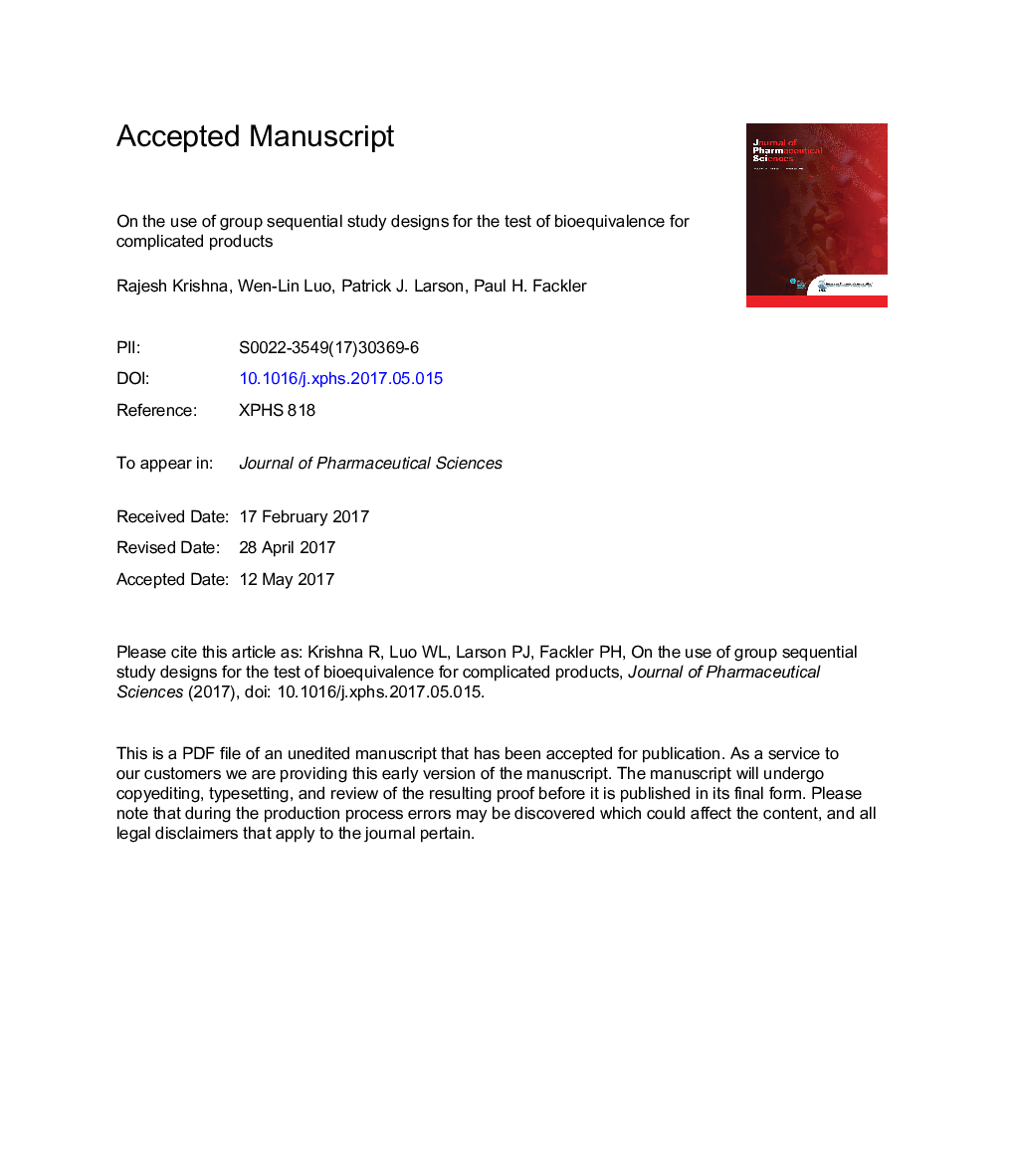| Article ID | Journal | Published Year | Pages | File Type |
|---|---|---|---|---|
| 8513841 | Journal of Pharmaceutical Sciences | 2017 | 14 Pages |
Abstract
A novel modeling approach together with a use of group sequential study design for a complicated triple fixed-dose combination was attempted. Probability of success (POS) was used for determining a weighted average power, where weight was based on available information such as data from previous pilot studies or literature. A simulation study was conducted that resulted in the development of the necessary sample size for the studies in addition to identifying a decision algorithm that was prospectively defined in the protocols. Prospective inclusion of decision algorithms in the respective protocols facilitated a decision analytic approach to continuance or discontinuance of the product concept. Whereas the data suggested going to stage 2 was appropriate, the overall POS of meeting the equivalence requirements upon completion of the study were very low, leading to termination of the selected formulation concepts. The use of such novel designs for bioequivalence assessment can be applied for staged investments, particularly when there is uncertainty in formulation POS or when the pilot-scale pharmacokinetic studies are not likely to predict the final-scale pivotal studies.
Keywords
Related Topics
Health Sciences
Pharmacology, Toxicology and Pharmaceutical Science
Drug Discovery
Authors
Rajesh Krishna, Wen-Lin Luo, Patrick J. Larson, Paul H. Fackler,
